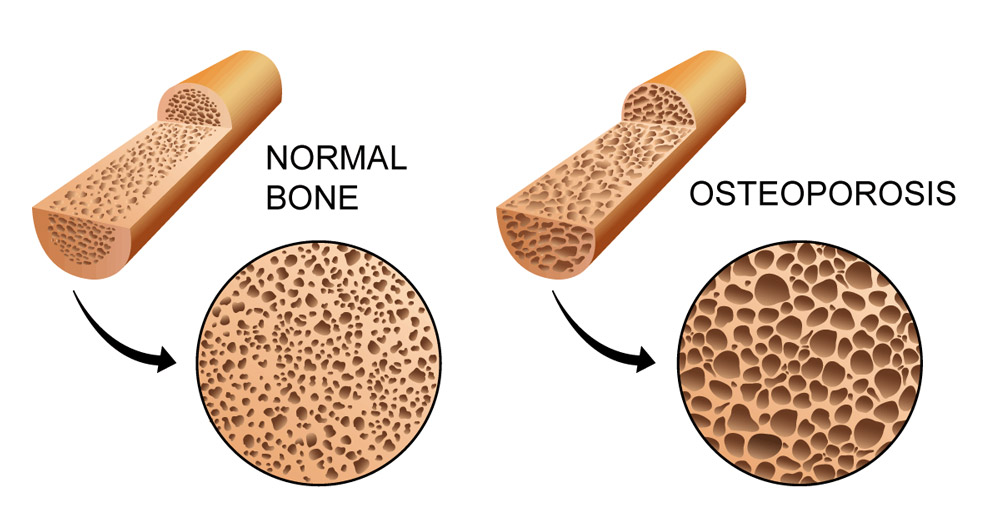Osteoporosis is the most common bone disease, affecting millions of people worldwide.
Current statistics indicate that it’s prevalence increases with age, although it is more common among women and those who have a direct relative with Osteoporosis. This condition is known for a key characteristic: decreased bone density.
Decreased bone density causes the bones to become weak and brittle, which increases the risk of fractures. Because Osteoporosis has no specific pain or symptoms, it’s not uncommon for it to go undiagnosed until after a fracture occurs.
The good news is that there are several prevention and management measures which can be taken to guard against this condition. Some of which are to:
- cease smoking
- limit your alcohol intake
- limit your caffeine intake
- do regular weight bearing and strength training activities
- ensure you have the recommended calcium intake (1,000mg/day for the average adult OR 1,300mg/day for post-menopausal women, adults over 70, and children)
- ensure you have the recommended Vitamin D intake.
Both Calcium and Vitamin D help promote bone density, and it is important to ensure you are receiving the correct amounts.
You can check out Dr Laura’s previous blog on Vitamin D, which explains how it is technically a hormone and not a vitamin.
How can Osteopathy help manage Osteoporosis?
As regular weight-bearing exercise and strength-training is recommended for improving or maintaining bone density, these programs can be individually tailored to you by your local osteopath. Osteopathy can also assist in ensuring you are physically ready to begin these fitness programs, in order to improve your bone health. We do this by treating any areas of joint restriction or muscular tightness, as well as any existing injuries.
I think I may have Osteoporosis, what do I do now?
If you are in your middle to later years, or suspect that you may have Osteoporosis, having a discussion about Osteoporosis and medical treatment options with your GP on your next visit is recommended.
Currently, the most reliable diagnostic test for measuring bone density is a DXA scan (dual-energy absorptiometry scan). This scan is short and pain free, with some patients being eligible for rebates through Medicare. You can read more about it on the Better Health website.
Our friendly team of practitioners are available for further advice in regards to Osteoporosis and how you can prevent or manage the condition.
References
Better Health Channel. (2023). Osteoporosis. https://www.betterhealth.vic.gov.au/health/conditionsandtreatments/osteoporosis
Walker, B. R., Colledge, N. R., Ralston, S., & Penman, I. D. (2014). Davidson’s Principles and Practice of Medicine. Churchill Livingstone/Elsevier.

